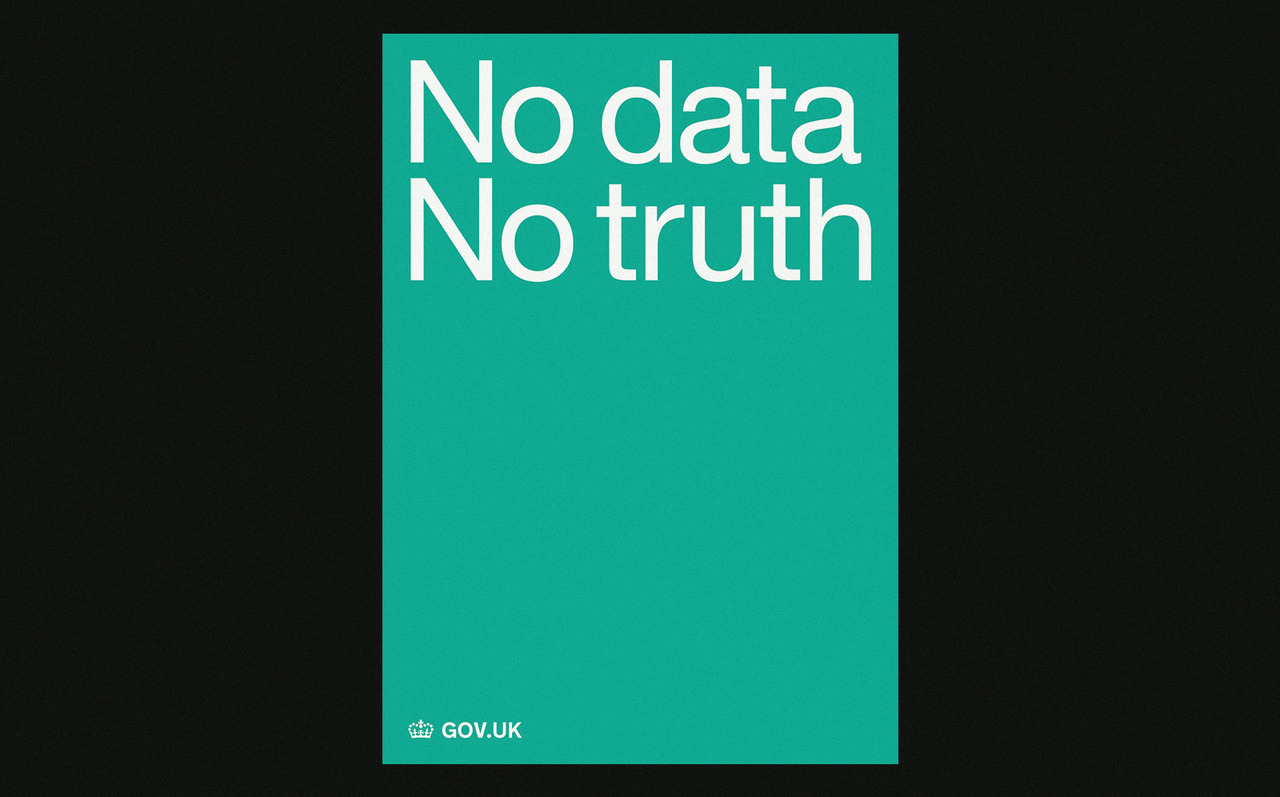The Language of Digital Transformation and the Gap between GaaP and Transformational Government
Digital Transformation has been amazing, but is being limited by the language on which it was founded.

Note: this was initially written as an assignment for the Transformation by Design Module of the (IIPP MPA). It has been slightly edited from that version to add just a bit of nuance, as a treat.
Digital transformation (understood loosely as the process of applying Internet-era ways of informing, interacting, collaborating or working to government or other large organisations) has been a huge success in the past decade. Taking Britain as the poster child for this transformation, we can see that government truly has been (ahem) transformed, with a huge number of government services now available online in a consistent, accessible way, the GDS (Government Digital Service) has managed to get it's way (the Internet way) as the de-facto way of doing publishing, service design and IT procurement.
This incredibly beneficial transformation has been underpinned by language that is loaded with ideological bias on the role and function of the state and government, and heavily laden with assumptions around cost effectiveness as the ultimate metric to guide government activity. This has not affected the quality of services developed so far (on the contrary, perhaps), but it very well limits the decision space available to governments, if taken at face value.
It all makes perfect sense, expressed in dollars and cents, pounds shillings and pence
The foundational document of the GDS, the recipe on how it was built, Martha Lane Fox's letter to Francis Maude, is a laundry list of measures that the government should take to provide better digital services. It is a fascinating document, one well worth the read. In it, one can see all the key features of what made GDS such an influential organisation in government. One can also see that everything is expressed in bottom-line terms. That's partly because that is how the author understood her brief - a strategic review of DirectGov. It stands to reason though that if the foundational document talks about efficiencies of channel shift to digital extensively, the resulting organisation is going to have efficiency at it's core.
The limits of government
The language around governments role is sometimes very blunt and direct. Nowhere is this more obvious than in GDS' design principles. The second one states in no unclear terms "Do less". This is in line with the UNIX philosophy (more on that later). The principle is then expanded upon. "Government should only do what only government can do." Oh dear, that's a strong statement (a bit of digging shows this is a slightly modified quote from American President Abraham Lincoln).
This is echoed in another one of the foundational documents of the movement, entitled simply "Government as a Platform", by Tim O'Reilly, one of the high priests of Silicon Valley. In it, he also offers guidance on what Government 2.0 would look like. One of the key quotes for me is "Government 2.0 is not a new kind of government; it is government stripped down to its core [emphasis mine], rediscovered and reimagined as if for the first time." The paper continues saying "In this model, government is a convener and an enabler rather than the first mover of civic action."
This is language that harkens to the political and public administration orthodoxy instilled since the 1980s with the neoliberal ideology. This language leaves no room for market shaping, it is downright hostile towards it, an encroachment on what government should be doing - building the infrastructure (platform) and getting out of the way. It was also evident in the UK coalition government's policy of "Big Society".
Most interestingly is the veneer of technocracy, self-evidence or transcending ideological barriers that this language implies. Government doing only what it alone can do is a strong enough statement, and it makes sense when thinking about the government publishing data freely, but not building the timetable app for your local bus-route, but it becomes infinitely more complex when even questioning whether government alone can offer healthcare or education at scale (Taken at face value, that would suggest that government should not provide healthcare, but provide the platform for it). O'Reilly even goes as far as to say that GaaP shows that the old left-right debate around who should provide services is "a false dichotomy", followed by "Being a platform provider means government stripped down to essentials". False dichotomy indeed.
Platforms or trampolines?
Another aspect which I found interesting in the "Government as a Platform" essay - his reference to the "Federal-Aid Highway Act" and the building of the highway infrastructure in the U.S. as "a triumph of platform thinking". Creating and setting the base rules for the infrastructure - gasoline tax and speed limits is what government should concern itself with in this conception.
O'Reilly continues by giving an example of how transformational the Internet is for community building in which a community in Hawaii uses the Internet to self-organise to build a road that the state government was unable to build for a frustrating amount of time.
Truly, infrastructure building and maintenance is a basic and essential role of government. And this example of local communities being enabled to take these matters into their own hands should concern slow, unwieldy governments and should give us pause when thinking "What else should government do for us?". But without even posing the question, it is impossible to come up with an answer.
If we only think of government as a platform, it will never reach to it's potential of being the transformational entity that it is at it's best: one that strives for social justice and that infuses new innovation into the economy (incidentally, both hackers and Silicon Valley types wistfully ignore the role the state has had in the fundamentals of the Internet.).
The government should be seen as a trampoline, enabling us to see further than the ones that came before us. Or, if you will, in the idea of market shaping and tilting the playing field, as a tilted platform, drawing more effort and resources towards the direction we want society to go - be it a green transition, inclusive growth or what have you.
How did we inherit this language
It shouldn't really surprise us that the web-lingo being used around government is this way. After all, the people leading the charge on this revolution are influenced by two largely overlapping cultures: that of (UNIX) hackers, and that of Silicon Valley entrepreneurs.
From the UNIX hackers you get the technical underpinnings and the inclination towards smallness and composability. The main points of UNIX philosophy are "everything is a file" - which leads us to interoperability and, more importantly "Do one thing and do it well". This works well as a guiding principle for computer programs, and might even work for government departments but less so for governments as a whole, whose "legacy" is not always akin to technical debt (though old statues and old institutions might be thought of that way).
From the Silicon Valley types you get the obsession with user numbers, exponential growth, user data (exemplified in this beautiful poster from the GDS's design Tumblr and in the GDS' third design principle, "Design with data"), efficiency, product-market fit, and tools like burn down charts.

Both of these cultures have fed into one another for a long time - UC Berkeley was one of the birthplaces of the open-source movement and contributed massively to innovations and systems like BSD which were later on used as the bases of NeXT, Apple's Mac OS X and iOS.
They both feature a heavy bent towards militant libertarianism. The early hacker culture bred organisations like the Electronic Frontier Foundation, militating for a free and open Internet. Their manifesto containts the paragraph
Governments of the Industrial World, you weary giants of flesh and steel, I come from Cyberspace, the new home of Mind. On behalf of the future, I ask you of the past to leave us alone. You are not welcome among us. You have no sovereignty where we gather."
Companies such as Uber, AirBnB and even Google, Silicon Valley favorites have long lived and acted by mantras like "Move fast, break things" or "It is better to ask for forgiveness than permission", which is incidentally one of the core tenets of the Python programming language, a product of the hacker culture beloved by both Silicon Valley and old-school hackers alike. Peter Thiel, founder of PayPal, Palantir, and early investor in Facebook, funded an initiative to develop a floating city in international waters, far from government regulations to be used as a tech hub.
Conclusion
The language we use matters. It betrays and informs one's underlying philosophies and later shapes the realm of the possible for one's audience (be it a conference you're speaking to, or the organisation you're writing the manifesto for). You can only think the concepts you have the words to describe - paucity of language will lead to a shortage of new concepts later on. A study has looked at how the metaphors you use to describe a phenomenon subconsciously determine what policy measures you support around it.
We have plenty to be thankful for to GDS and similar outfits around the world - not just for the improved digital services we have because of them, but because of delivering on the promise of introducing Internet-era ways of working into ossified bureaucracies. This infusion of agility was overdue. Similarily, Tim O'Reilly's vision for the internet and government made a lot of sense in the early days of the social internet. But even he has shifted his views on what the internet has become and how platform companies are exploiting rents to extinguish competition and innovation.
That being said, a government conceived as a level platform can only do so much (and private platforms can only be left alone so much). In order to bring forth the next steps of what digital can mean, how the capabilities of what is dubbed A.I. (another example of problematic language use) can be leveraged for the public purpose and what government can do (for it's citizens, not for itself) we need to use new words, to develop entirely new language for thinking about these issues. I would welcome a re-envisioning of nerd talk around public purpose, and so should everyone.
